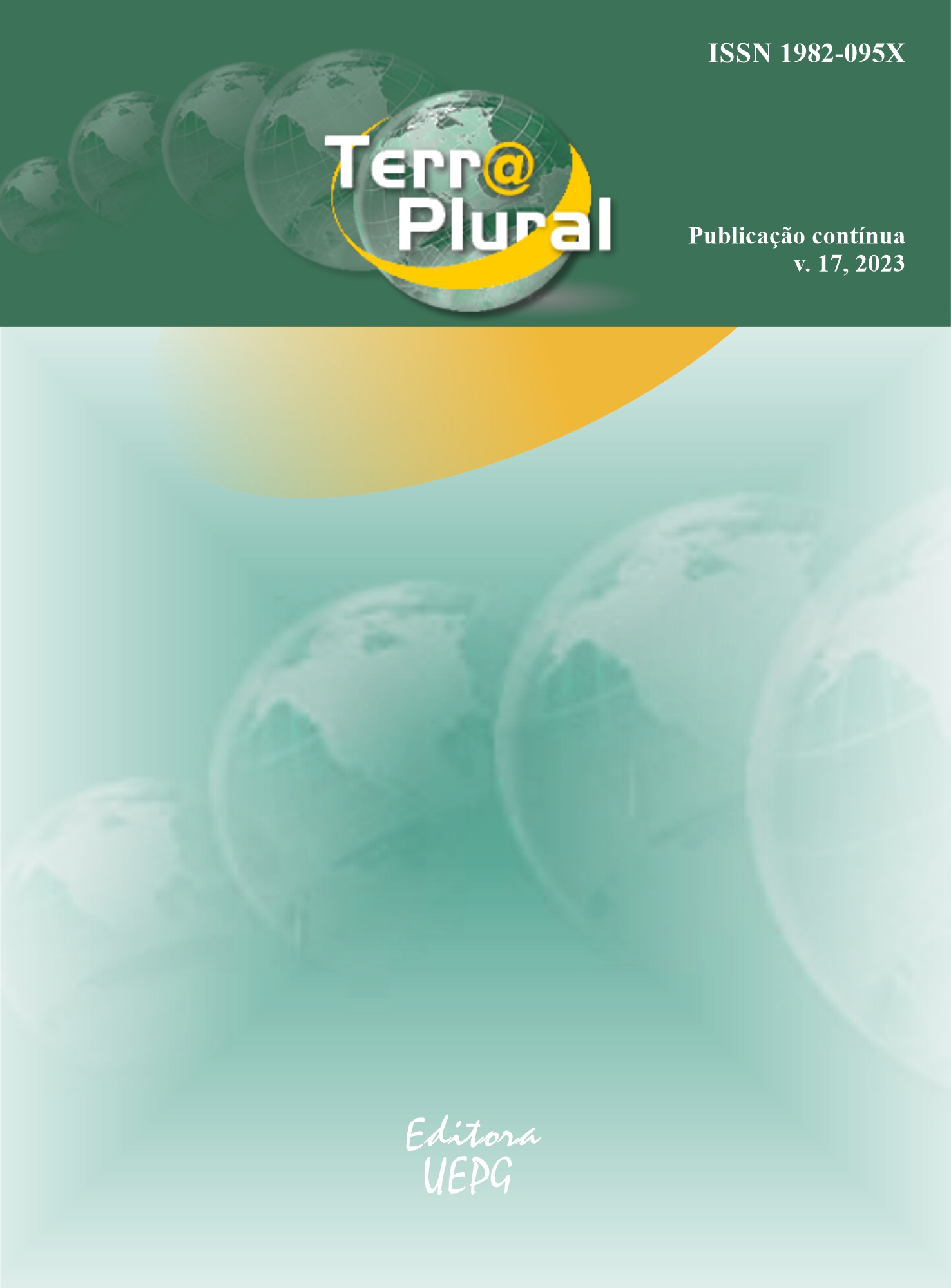Explorando la dinámica de la gentrificación urbana
Una perspectiva de la Geografía Humana
DOI:
https://doi.org/10.5212/TerraPlural.v.17.2322355.021Palabras clave:
Desigualdad, desplazamientos, comunidadResumen
La gentrificación urbana, un proceso de transformación de barrios impulsado por complejas interacciones de fuerzas socioeconómicas, intervenciones políticas y cambios culturales, se ha convertido en un destacado punto focal de la geografía humana contemporánea. Este artículo ofrece una exploración geográfico-humana exhaustiva de la dinámica, las repercusiones y las implicaciones de la gentrificación. Este estudio investiga las polifacéticas dimensiones de la gentrificación en los paisajes urbanos mediante un análisis sintetizado de la bibliografía existente, estudios de casos empíricos y marcos teóricos. El artículo comienza dilucidando los diversos factores que inician y perpetúan la gentrificación, entre ellos el aumento del valor de la propiedad, el cambio en las preferencias de los consumidores y la reestructuración económica. Posteriormente, se examinan las manifestaciones espaciales y las repercusiones sociales de la gentrificación, haciendo hincapié en el desplazamiento de las comunidades existentes, la alteración de la identidad de los barrios y la transformación de los paisajes urbanos. A continuación, se cuestiona el papel de las políticas públicas en la configuración de las trayectorias de gentrificación, destacando la influencia de la planificación urbana, las políticas de vivienda y las normativas de zonificación en el proceso. Además, el artículo aborda las impugnaciones y resistencias que suele generar la gentrificación. Examina las estrategias que las comunidades marginadas y las organizaciones de base han adoptado para desafiar el desplazamiento de residentes de larga data y la erosión de las culturas. Basándose en estas ideas, el estudio aboga por estrategias de desarrollo urbano integradoras y equitativas que den prioridad a los principios de justicia social y bienestar comunitario. Esta investigación contribuye a una comprensión holística de la gentrificación urbana desde la perspectiva de la geografía humana. Al desentrañar las intrincadas relaciones entre espacio, sociedad, política y dinámica de poder, este artículo subraya la necesidad de enfoques diferenciados para abordar los retos que plantea la gentrificación y promover paisajes urbanos sostenibles y vibrantes que den cabida a poblaciones diversas y preserven las identidades locales.
Descargas
Descargas
Publicado
Cómo citar
Número
Sección
Licencia
Derechos de autor 2023 BAPPA HOSEN

Esta obra está bajo una licencia internacional Creative Commons Atribución-NoComercial-SinDerivadas 4.0.
La revista Terr@ Plural retendrá el copyright de los trabajos publicados. Los derechos tienen referencia con la publicación del trabajo en cualquier parte del mundo, incluyendo los derechos a Las renovaciones, expansiones y diseminaciones de la contribución, así como otros derechos subsidiarios. Los autores tienen permiso para la publicación de la contribución en otra medio, materia impresa o digital, en portugués o en otra traducción, desde que los créditos tenidos sean dados a la Revista Terr@ Plural. Si permite el autoarchivo de los artículos publicados, en repositorios institucionales, temáticos o páginas webs personales en la versión pdf bajada del site de la revista.















